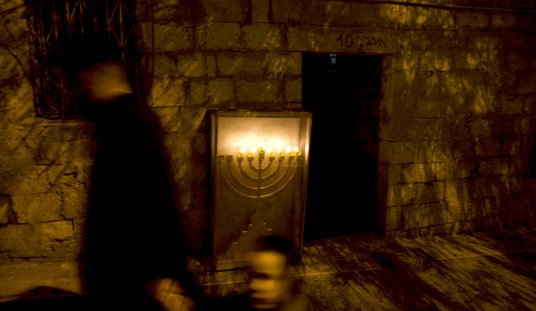In the early morning of October 19, a fire ravaged through the property surrounding Masjid Salama, a growing Columbus, Ohio, mosque frequented primarily by members of the local Somali community. Several Somali-owned businesses surrounding the mosque were heavily damaged, but the mosque itself was not touched. However, because of the surrounding damage, the mosque itself has not been cleared for reopening.
As reported by the Columbus Dispatch, fire investigators immediately determined that arson was to blame for the blaze.
But rather than blaming the arson on unknown anti-Muslim individuals engaged in a religious hate crime, many inside the Columbus Somali community are fixing their suspicions on leaders of another local Somali mosque, Masjid Ibn Taymiya. This mosque is dominated by supporters of the al-Shabaab terrorist group, and members have made repeated attempts to take over the rapidly growing Salama congregation through an unsuccessful campaign of legal and physical intimidation.
Following the blaze, I met with two leaders of Masjid Salama, who described the ongoing efforts by the leaders of Ibn Taymiya to take over their burgeoning year-and-a-half-old congregation. On November 12, the Salama leaders had to obtain a temporary restraining order to prevent the bulldozing of their rented facility by a leader of the Ibn Taymiya mosque, Mohamed Hassan, who, they say, is the ringleader of the campaign.
“The first thing Hassan did was to obtain the lease rights to the property we rented, and then use his contacts in City Hall to try to illegally evict us,” one of the Salama leaders said. In fact, Hassan took the Salama mosque to court earlier this month, only two weeks after the arson at the mosque property, claiming that they had not paid rent — a claim that was soundly rejected by the judge when the Salama leaders provided canceled copies of the rent checks for the past year. Hassan had also rejected checks for the past three months rent.
But Hassan’s harassment campaign began earlier this year when he obtained trespassing orders from the Columbus prosecutor’s office. According to the Salama leaders, Hassan hoped to force them from the mosque property, change the locks overnight, and reopen the mosque the following day with a new imam appointed by Ibn Taymiya. That plan failed when it was pointed out that the mosque property wasn’t even in the Columbus prosecutor’s jurisdiction, making the orders invalid.
The Salama leaders said that Hassan then sent a team of “mediators,” who proposed that the entire Salama board resign, but the current imam would be retained and the “mediators” would appoint a new board. Needless to say, the Salama leaders rejected the proposal out of hand:
These people have nothing to do with our mosque. Who are they to demand mediation for anything? And all the proposals these mediators proposed would get rid of our board and finish the takeover of our mosque. This new board they would appoint would get rid of our imam as soon as they were in place. Why would we ever agree?
Not long after came the fire that has closed Salama ever since and the unsuccessful judicial hearing on the bogus claims that the mosque had not paid its rent.
Mohamed Hassan’s obsession with taking over the Salama mosque appears to center on significant religious differences between the two congregations. “This has nothing to do with Somali politics, and everything to do with extremist ideology,” the Salama leaders claimed.
They noted the extremist connections to Ibn Taymiya — particularly its sister mosque, Masjid Omar Ibn El Khattab, which was home to the Columbus-based al-Qaeda cell broken up by the FBI. Three members of that al-Qaeda cell have been convicted and are currently serving prison sentences on terror-related charges. Masjid Ibn Taymiya and Masjid Omar are both controlled and operated by the Islamic Society of Greater Columbus.
The Salama leaders also point to their own vocal opposition to the al-Shabaab terrorist group and the extremist ideology it propagates:
We have openly disputed with the al-Shabaab supporters in Columbus, and we reject their ideology of offensive jihad and suicide bombings. As a result, many people have been leaving Ibn Taymiya, where they preach offensive jihad against the infidels, and coming to our mosque to get away from the extremists. That’s why they want to shut us down or take over our mosque — to get rid of the competition. (emphasis mine)
Ibn Taymiya’s ties to the local al-Qaeda mosque are not it’s only troubling connections to terror. The mosque is also affiliated with the Council of Imams, a national organization of Somali Islamic leaders that was incorporated by the previous imam at Ibn Taymiya. It is now headed by Sheik Abdirahman Ahmed, the Minneapolis imam at the center of the current nationwide terrorism investigation into al-Shabaab recruiting. As reported by Newsweek, the New York Times, and many other media outlets, more than a dozen young Somali men were recruited out of Sheik Ahmed’s Abubakar Siddique Islamic Center. The FBI has been investigating al-Shabaab recruitment in Columbus as well.
But the continuing campaign to take over Masjid Salama by Mohamed Hassan and his Ibn Taymiya allies has not deterred Salama’s leaders, and they remain defiant despite their months-long ordeal:
They have used their political contacts, the courts, and now arson to evict us and try to shut us down. And they have failed every time. We will keep fighting, because if we lose this battle here, we have nowhere else to go.
While arson investigators continue to look into the fire that has temporarily displaced Masjid Salama, the leaders are waiting to see whether local officials and the media in Ohio — who have thus far ignored the larger controversy surrounding the fire — will finally recognize the larger battle between Muslim moderates and extremists happening in the Columbus Somali community.
And waiting to see exactly who the politicians and media will side with in this struggle.









Join the conversation as a VIP Member